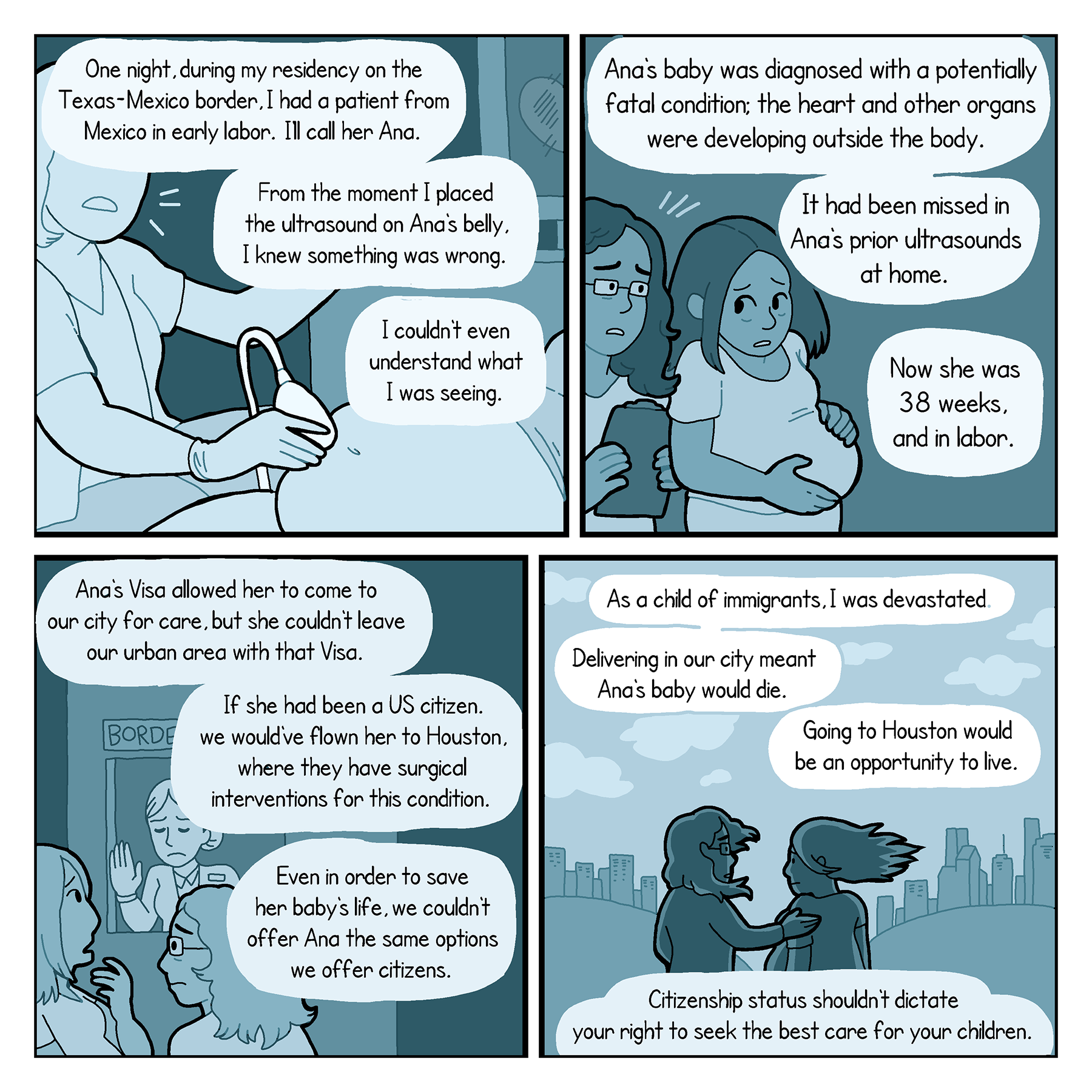Voices of Courage is excited to present This is Life, a new illustrated series by artist Magnolia Porter bringing your stories about reproductive health care to life. Submit your stories now for your chance to be illustrated!
—

I completed my residency training on the Texas-Mexico border. I became very skilled at doing third-trimester ultrasounds – any patient without prenatal care in the U.S. was required to have an ultrasound on admission. The ultrasound became a good time to talk to patients about their health history and discuss their plans for delivery.
One night, a patient presented in early labor from Mexico; I’ll call her Ana. I placed the probe on Ana’s large belly and knew something was wrong. I couldn’t even understand what I was seeing. I called my supervising physician for assistance – he thought maybe I was holding the probe wrong, but I kept showing him a beating organ outside of the body. After a formal consultation from a perinatologist, Ana’s baby was diagnosed with a potentially fatal condition, Pentalogy of Cantrell. The baby’s heart and other organs were developing on the outside of the body. It had been missed in Ana’s prior ultrasounds at home. Now, she was 38 weeks pregnany and in labor.
Ana had a visa that allowed her to come to our city for medical care, but she could not leave our urban area with that visa. If she had been an American citizen, we would have flown her to Houston. They have a nationally recognized children’s hospital with experience in surgical interventions for this condition. Even in order to save her baby’s life, we could not offer Ana the same options we would offer citizens.
As the child of immigrants, I was devastated. I knew that delivering in our city meant her baby would die, and going to Houston would be an opportunity to live. Citizenship status should not dictate your right to seek the best care for your children. Ana’s beautiful baby was born alive and died soon a few hours after delivery. Every person in our country deserves equitable reproductive health care, regardless of their immigration status





